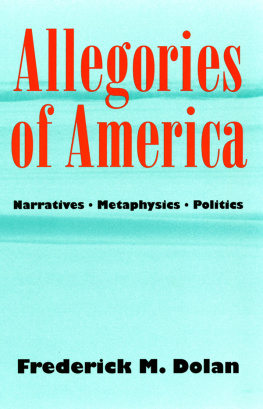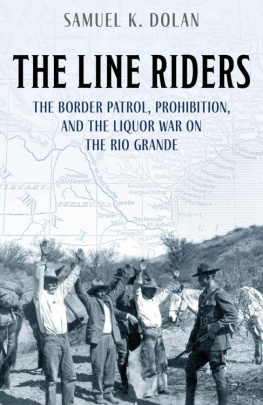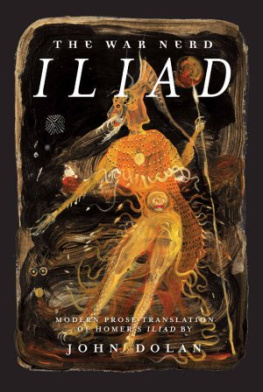Dolan - Allegories of America: narratives, mataphysics, politics
Here you can read online Dolan - Allegories of America: narratives, mataphysics, politics full text of the book (entire story) in english for free. Download pdf and epub, get meaning, cover and reviews about this ebook. year: 1995;2018, publisher: Cornell University Press, genre: Religion. Description of the work, (preface) as well as reviews are available. Best literature library LitArk.com created for fans of good reading and offers a wide selection of genres:
Romance novel
Science fiction
Adventure
Detective
Science
History
Home and family
Prose
Art
Politics
Computer
Non-fiction
Religion
Business
Children
Humor
Choose a favorite category and find really read worthwhile books. Enjoy immersion in the world of imagination, feel the emotions of the characters or learn something new for yourself, make an fascinating discovery.
- Book:Allegories of America: narratives, mataphysics, politics
- Author:
- Publisher:Cornell University Press
- Genre:
- Year:1995;2018
- Rating:4 / 5
- Favourites:Add to favourites
- Your mark:
- 80
- 1
- 2
- 3
- 4
- 5
Allegories of America: narratives, mataphysics, politics: summary, description and annotation
We offer to read an annotation, description, summary or preface (depends on what the author of the book "Allegories of America: narratives, mataphysics, politics" wrote himself). If you haven't found the necessary information about the book — write in the comments, we will try to find it.
Dolan: author's other books
Who wrote Allegories of America: narratives, mataphysics, politics? Find out the surname, the name of the author of the book and a list of all author's works by series.
Allegories of America: narratives, mataphysics, politics — read online for free the complete book (whole text) full work
Below is the text of the book, divided by pages. System saving the place of the last page read, allows you to conveniently read the book "Allegories of America: narratives, mataphysics, politics" online for free, without having to search again every time where you left off. Put a bookmark, and you can go to the page where you finished reading at any time.
Font size:
Interval:
Bookmark:

To my mother and to the memory of my father
An adequate acknowledgment of the individuals and institutions who have earned my gratitude for their support and encouragement would be embarrassingly long, and so I am more selective than my debts, in all strictness, allow. My colleagues in the Department of Rhetoric at the University of California, Berkeley, have created an electrifying environment for writing and teaching at the crossroads of the humanities and social sciences, and it is a pleasure to acknowledge their stimulus. Students from many disciplines, both undergraduate and graduate, prompted me to elaborate and revise some of the ideas and interpretations in play here when I tried them out in classes, seminars, and informal discussions. I am particularly grateful to David Dahl and Elizabeth Maddock Dillon, who served as my research assistants. William E. Connolly, Roger Haydon, and Janet S. Mais aided and abetted the transmutation of manuscript to book, and Stanley Aronowitz, Jane Bennett, Thomas L. Dumm, Philip Kuber-ski, Michael Shapiro, and Dana R. Villa provided incisive readings. I benefited greatly from a sabbatical leave supported by a Humanities Research Fellowship from the University of California at Berkeley and from a fellowship from the Doreen B. Townsend Center for the Humanities (also at Berkeley). Versions of parts of Chapters 3 and 4 appeared in the Canadian Journal of Political and Social Theory 12:8 (1988); Diacritics 20:2 (1990); Contemporary Literature 32:4 (1991), copyright 1991 by the regents of the University of Wisconsin and used by permission of the University of Wisconsin Press; the Massachusetts Review 32:1 (1991), and Ideology and Power in the Age of Lenin in Ruins, ed. Arthur and Marilouise Kroker (New York: St. Martins Press, 1991), and I am happy to acknowledge these journals and publishers and their readers, whose responses were stimulating and helpful.
I am by no means certain that those who have put up with my preoccupations would care to be so identified. Nonetheless, for sharing with me their intelligence and wit, and for their constancy, I must thank, in some cases a second time: Marianne Constable, Maureen Dolan, Tom Dumm, Vicky Elliott, Phil Kuberski, Avital Ronell, and Dana Villa.
F.M.D.
Berkeley, California
In Harlots Ghost , Norman Mailers epic novel of postwar America, Harlot, an old hand at the Central Intelligence Agency answerable only to Allen Dulles, formulates a distinction between espionage and counterespionage. Espionage, he tells a group of CIA trainees, is a middle-class activity. It depends on stability, money, large doses of hypocrisy on both sides, insurance plans, grievances, underlying loyalty, constant inclinations toward treachery, and an immersion in white collar work (p. 421). It is, in other words, thoroughly banal and straightforward, continuous with the routine duplicity of everyday professional life, utterly familiar and intelligible. But whereas espionage involves nothing more than a simple, self-aggrandizing violation of a trust, counterespionage is, in Harlots estimation, damnable. The world of counterespionage is built on lies. Or, should we say, on inspirations? and thrives on complexity, uncertainty, unintelligibility (p. 426).
Precisely because each of the great parties to the conflict between democracy and communism expects the other to lie, the game of counterespionage is played best by those whose loyalties are unknown, especially to themselves. Agent Hubbard, the narrator of Harlots Ghost , spends the middle 1950s in Montevideo trying to corrupt a minor Uruguayan communist and finds that the more experience of the CIA he acquires, the less sure he is of its aims, the more uncertain he becomes of his own motives and those of his colleagues. As the novel unfolds, the CIA becomes an utter mystery even to the most powerful within it; when disaster strikes, the first question is always whether the perpetrator was an enemy or one of their own. Because it is certain that at all times one is being lied to and manipulated, even the most unpredictable historical events are interpretable: the Sino-Soviet split, for example, is a gargantuan production in disinformation (p. 1203). These interpretations are inherently un-verifiable, but that serves only as a goad to a virtually pathological will to know: The actors in this kind of venture tend to be adventurers, aristocrats, and psychopaths, Harlot acknowledges (p. 426). The arena of counterespionagewhich, as Mailers novel encourages us to believe, is paradigmatic for the texture of American life after World War IIis one of rumors, impressions, hypotheses, suppositions, opinions, appearances, of reflections whose aspects and attributes are continuously rearranged and reinterpreted to the point where lucidity and paranoia, freedom and totalitarianism, change places and merge.
Mailers evocation of the character of postwar America brings together, in both content and form, some themes I explore in this book: the spaces opened up for power in an interpretively open world; the latent metaphysics of a politics entirely given over to phantasms and simulacra but whose actors are driven by the need to reduce the interpretive ambiguity of their world to the reassuring forms of a metaphysical allegory; the affirmation of America as a privileged locus of such experiences; and the indispensability of fiction for registering the complex ironies generated by this situation. In the chapters that follow, I survey strands of the American discourse on national identity, paying particular attention to this interpretative problematic. These readings rely on a persistent feature of claims Americans make about their national political life (a feature they no doubt share with other national communities), to the effect that the American political project secures a privileged spiritual or metaphysical value. At the same time, Americas self-allegorization is also self-deconstructing, as reliant on tropes of self-creation and fictionalization as on that of the correct, mirrorlike representation of the real as a foundation for a national project. Americas discourse of national identity incessantly negotiates the two poles of, on the one hand, solid foundations or grand narratives and, on the other, the ever-present threat of the collapse of absolutes.
My reason for carrying out these readings, however, is not solely a fascination with the twists and turns of American public discourses and their theorization. Holding these readings together is the conviction that such discourses allegorize the central problematic that post-Nietzschean and post-Heideggerian reflection offers to political theory: that of speaking, acting, and judging without grounds, the withering away of transcendental normative principles invoked to anchor political actions, judgments, opinions. In the historicodis-cursive events we know as America, the postmodern problematic assumes the form of a national myth; and American national ideology, from its canonical founding texts and speeches onward, can be shown to reflect and indeed perform the conundrums and complexities associated with the loss of grounds for action articulated first by Nietzsche and Heidegger and then by so many others. I attempt to illuminate that problematic by situating it in the context of discursive events organized by actual political conflicts, tasks, and judgments, as well as to illuminate Americas political fantasies through the postmodern problematic, and so to explore and expose the limits of each. To this end, I exploit various interpretative or hermeneutic orientations and devices, from deconstruction to the analysis of ideology. Reading the discourse of American national identity, then, is motivated by a concern for this problematic, so although I have tried to learn from historians of American political thought, my approach has been driven by my fascination with the problems I seek to expose, not by a desire for historical comprehensiveness.
Next pageFont size:
Interval:
Bookmark:
Similar books «Allegories of America: narratives, mataphysics, politics»
Look at similar books to Allegories of America: narratives, mataphysics, politics. We have selected literature similar in name and meaning in the hope of providing readers with more options to find new, interesting, not yet read works.
Discussion, reviews of the book Allegories of America: narratives, mataphysics, politics and just readers' own opinions. Leave your comments, write what you think about the work, its meaning or the main characters. Specify what exactly you liked and what you didn't like, and why you think so.











